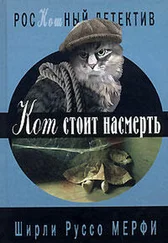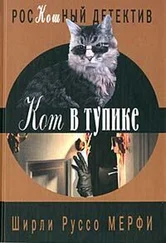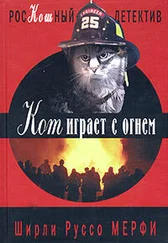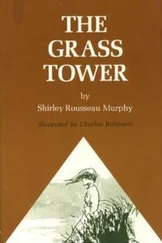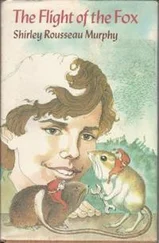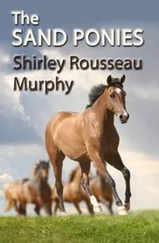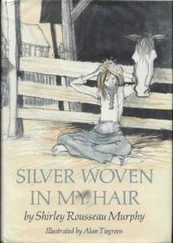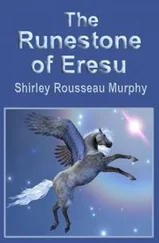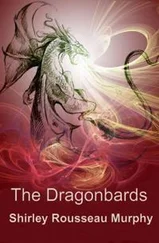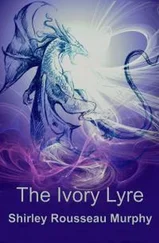You gave it to me once, he answered. When we found it in the saddle. We have had a search all right. Was that a questing too?
Or is there more? she thought.
There is always more. There is a whole lifetime of questing. He did not know whether the others heard their thoughts. It didn’t matter. Carriol was there below them, a sanctuary, a place of freedom, and new beginning; and they rode on the winds above it as they had dreamed, as all of them had longed to do. He laid a hand on his horse’s neck and felt again the warmth of the strong body beneath him, saw the horse’s ears go forward as he chose a distant landing. They descended, and he felt Zephy’s longing to stay windborne forever; their two horses swept close together, playing in the wind, nipping lightly, and then settled into a long glide that, Thorn thought, would take them down over Carriol’s islands. Crouching beneath the dark wings, he could see all of Ere for a moment, the deep Bay of Pelli, the deserts beyond. It was not so large and forbidding, seen from the sky; nor would it seem so large again, ever.
The winged horses descended, dropping down over the coast of Carriol. The sea swept away to the left Thorn felt his horse tense, saw the land come up quick, felt the great wings catch at the wind in a new way—felt the jolt as the Horse of Eresu landed on a high mass of stone and crumbling walls that rose from the cliffs above the sea. The stallion’s wings, at sudden rest, folded over Thorn’s legs and beside his body. The others were landing, plummeting down.
They were high above the sea and cliffs on a patch of green supported by ancient walls and towers. They were high in the ruined city, the ancient city Carriol. Below them the ruins crumbled away. Above them a broken tower rose into the clear sky. To the south they could see the pastures of Carriol, a city, farms, then a bay and far in the distance the huge neck of land running out into the sea; this would be Sangur. To the right of Sangur lay the wide Bay of Pelli. But this was all very distant softened by mists. Close at hand, on Thorn’s left, the sea beat a strange soothing cadence as breakers crashed upon the cliffs. Zephy came close and stood with him. They looked out at the three islands, Fentress and Doonas and Skoke, and at the dwellings clinging there, and the little winding streets; and to their right, below the broken walls, the sweep of Carriol. The winged horse still stood close to Thorn, nuzzling him now, then raised its head to look out over Carriol, too, with a soft nicker; nuzzled again, then lifted its wings. Thorn rubbed its neck, loathe for the stallion to leave but knowing he must. Zephy clung to her own horse and there were tears in her eyes. Then all in an instant the horses reared and were airborne, wings sweeping, were leaping into the wind, rising, were gone on the wind, a seething flock there above them, vanishing in cloud. The Children of Ynell crowded closer together, and gazed down over the waiting land.
The Wolf Bell
At a crossing in time when good and evil balance
On the burned land where they balance
A nation will be wrought.
Freedom and slavery crosswise on a tilted sword.
The bell will mark the Seer
Whose lifted hand decides it.
And the bell’s shadow cast over all
With the wolves looking
From the mountain.
Conceived in vengeance to buy a life,
The Seer will come into the mountain.
But the woman will turn at the crossroads
And the bell’s shadow cast over all
With the wolves looking
From the mountain:
She will be the vessel,
The bell’s shadow cast tall across her,
The lives of men betrayed.
Part One: The Bell
ONE
In the early days of Ere wolves came down from the high deserts to raid the Zandourian sheep, slaughtering them or driving the animals up a sheer cliff to climb in terror or fall to their deaths. The Zandourian herders thought the wolves devils from the fires of Urdd itself and, helpless in their fear, turned to the Seers of Zandour. So the Seer NiMarn fashioned a bell of bronze held by a rearing bitch-wolf; with it, a man gifted in Seeing could call the wolves as a mother calls her babe, and they would come grovelling. After that wolves left the herds untouched and became slaves to the Seers of Zandour.
But with the bell and its dark powers, NiMarn ruled more than wolves. He ruled the cities of Zandour as well. The wolf cult held reign for five generations, until the volcanoes spewed fire and devastation across the lands of Ere. In the panic of sweeping rivers of fire, smoke-darkened skies and starvation, the wolf cult could not hold men. The cult crumbled, the wolves returned to the wind, and the bell was lost.
As the last leader of the wolf cult lay dying deep in the cave that would be his grave, he whispered a prediction that lived in that cave long after his bones had crumbled:
“A bastard child will be born, and he will rule the wolves as no Seer before him has done.” His words were rasping and hate-filled, his sunken eyes cold with seeing his own betrayal. “A bastard child fathered by a Pellian bearing the last blood of the wolf cult. My blood! My blood seeping down generations hence from some bastard I sired and do not even know exists!
“A child born of a girl with the blood of Seers in her veins. A child that will go among the great wolves of the high mountains, where the lakes are made of fire. Wolves,” he whispered, shivering, “that are more than wolves. And that boy will seek a power greater even than the wolf bell, a power that even I could not master.” Bile came into the Seer’s mouth. He died with a look of cold fury on his thin face, and his bones rotted there in the cave of the wolf cult and he was forgotten for seven generations.
The volcanoes came once again. The lands were swept by fire. Men died and women became barren, and the few children born, it was said, were touched with evil. As the fires subsided, a girl-child was born in Zandour. She who would be mother to the bastard.
In those days a maid was chattel like the beasts, purchased at puberty for wifely work and breeding. When Tayba was thirteen her father took bids for her. She was tall and dark with teasing eyes and a beauty men watched with fine lust and bid high for. The bidders were wealthy young men whose fathers’ herds blanketed the hills of Zandour and whose mounts and jewels were envied. Seven bidders, then twelve, each going higher until Elgend chose the most generous, chose jewels and gold worth a kingdom. So young Blerdlo was given the promise of Tayba; and if he was gross and fat-gutted and smelled bad, that was not considered, was of no consequence in these dealings. Elgend had done well enough with his other daughters; now Tayba would double his fortunes. And if she bore a healthy child, Blerdlo promised a bonus of such splendor that Elgend found the customary long wait for the wedding celebration nearly as difficult as did Blerdlo.
Tayba allowed her father’s wives to give her the final training for marriage. She was silent and yielding to the prenuptial rituals and the Worshippings. She knelt docilely before the gods—and burned inside at gods who would allow her sale to that pig, Blerdlo, seethed hot with fury at the promising and vowed she would never honor it. Alone in her chambers, standing before her silver mirror, she mourned the betrayal of her own cool beauty, mourned the handsome young men who had wanted, and lost, her. Well she would not be wasted on Blerdlo; she might prepare for her wedding bed, but she would not lie in it with him.
Читать дальше
![Ширли Мерфи The Shattered Stone [calibre] обложка книги](/books/436059/shirli-merfi-the-shattered-stone-calibre-cover.webp)
